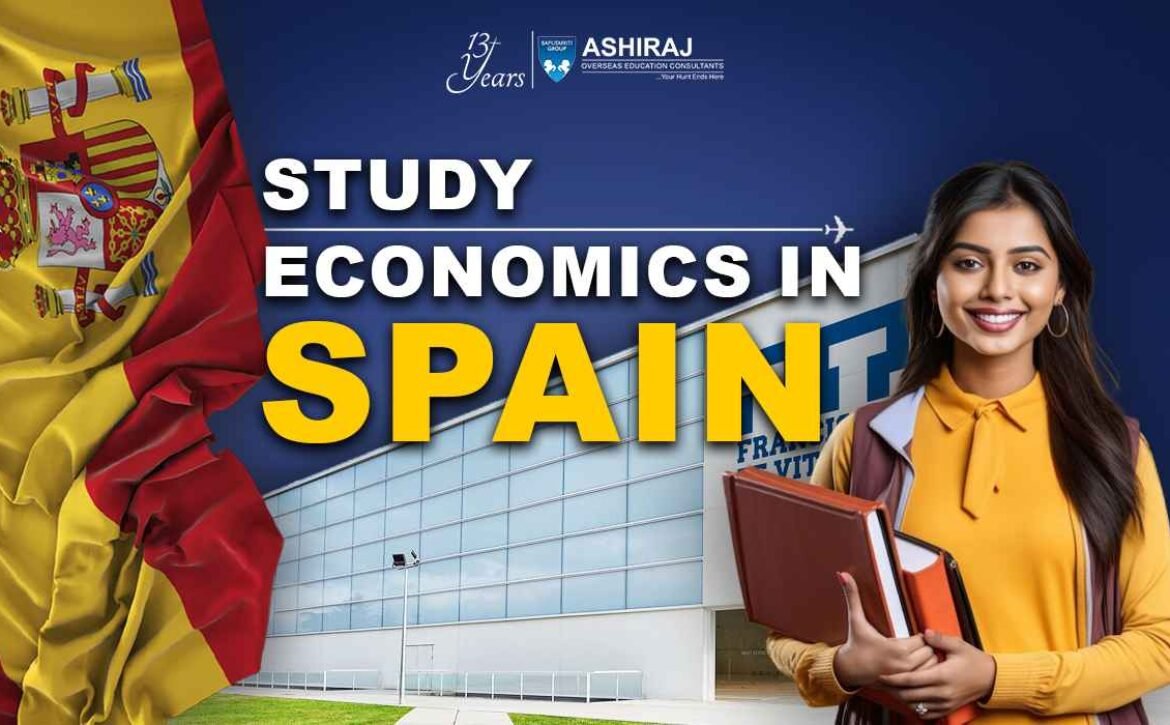
Economics in Spain
Economics in Spain holds a pivotal role in shaping not only the nation’s prosperity but also its socio-political landscape. As one of the largest economies in the Eurozone, Spain’s economic dynamics intertwine with global trends, yet retain unique national characteristics. The country boasts a diverse economic structure, spanning from traditional sectors like agriculture and tourism to modern industries such as automotive, renewable energy, and technology. With a population exceeding 47 million and strategic geographic positioning, Spain serves as a gateway to European markets and a crucial player in international trade.
Economics in Spain reflects a complex interplay of domestic policies, EU regulations, and global market forces. Historically, Spain has navigated periods of economic expansion and contraction, including the challenges posed by the 2008 financial crisis. Despite facing setbacks, the nation has demonstrated resilience, implementing reforms to bolster competitiveness and foster innovation. However, Spain also grapples with persistent issues like unemployment, regional economic disparities, and public debt. Understanding the intricacies of economics in Spain is paramount for policymakers, businesses, and investors seeking to navigate the opportunities and challenges within this dynamic economy.
Why to Study Economics in Spain?
- Dynamic Economic Environment: Spain offers a vibrant economic landscape, providing students with firsthand exposure to diverse industries and market trends, enriching their academic experience.
- EU Membership Benefits: As a member of the European Union, studying economics in Spain provides students with insights into EU policies, regulations, and access to a vast network of opportunities across the continent.
- Cultural Immersion: Studying economics in Spain offers more than just academic benefits; it provides students with an opportunity to immerse themselves in the rich Spanish culture, enhancing their global perspective and cross-cultural competency.
- Language Proficiency: Spanish is one of the most widely spoken languages globally. By studying economics in Spain, students can improve their language skills, enhancing their employability and communication abilities in an increasingly interconnected world.
- Networking Opportunities: Spain serves as a hub for international business and trade, offering students numerous networking opportunities with industry professionals, policymakers, and fellow students from around the world.
- Innovative Programs: Spanish universities offer innovative economics programs that combine theoretical knowledge with practical applications, preparing students for real-world challenges and opportunities in the field.
- Research and Internship Opportunities: With a strong emphasis on research and practical training, studying economics in Spain provides students with access to internships, research projects, and collaborations with leading institutions and organizations.
- Affordability and Quality Education: Spain offers high-quality education at relatively affordable tuition fees compared to other European countries, making it an attractive destination for international students seeking value for money.
By studying economics in Spain, students can gain a comprehensive understanding of Economics in SPAIN while enjoying a transformative academic and cultural experience.
Top Universities to Study Economics in Spain
University | QS World University Ranking 2023 | Type of University | Average Annual Fees | Programs Offered |
University of Barcelona | 150 | Public | €1,000 – €3,000 | Bachelor’s, Master’s, PhD in Economics |
Pompeu Fabra University | 180 | Public | €1,500 – €4,000 | Bachelor’s, Master’s, PhD in Economics |
Autonomous University of Madrid | 200 | Public | €1,200 – €3,500 | Bachelor’s, Master’s, PhD in Economics |
Complutense University of Madrid | 230 | Public | €1,000 – €3,000 | Bachelor’s, Master’s, PhD in Economics |
University of Navarra | 250 | Private | €5,000 – €12,000 | Bachelor’s, Master’s in Economics |
The pursuit of Economics in Spain is facilitated by a selection of esteemed universities renowned for their academic excellence and diverse program offerings. Here’s a glance at the top universities in Spain for Economics in Spain, along with their QS World University Rankings for 2023, type of university, average annual fees, and programs available. These institutions not only provide a robust academic foundation but also offer students opportunities for research, internships, and networking within Spain’s dynamic economic landscape. Whether aspiring economists seek public or private education, these universities cater to various academic preferences and budgetary considerations, ensuring a fulfilling educational journey aligned with the nuances of Economics in Spain.
Course Curriculum for Economics in Spain
- Foundational Courses: Economics programs in Spain typically begin with foundational courses covering microeconomics, macroeconomics, and econometrics, providing students with essential theoretical frameworks to analyze economic phenomena within the context of Spain’s economy.
- Specialized Tracks: Students can choose from a range of specialized tracks such as international economics, monetary economics, development economics, and environmental economics, allowing them to tailor their studies to specific areas of interest relevant to Economics in Spain.
- Empirical Analysis: The curriculum often includes courses focusing on empirical analysis, where students learn to apply statistical methods and economic models to real-world data, enabling them to conduct meaningful research and policy analysis within the Spanish economic context.
- Policy Analysis: Courses on economic policy analysis delve into the formulation and evaluation of economic policies at both the national and international levels, equipping students with the skills needed to assess and recommend policy interventions pertinent to Economics in Spain.
- Practical Applications: Many programs incorporate practical components such as case studies, internships, and projects in collaboration with government agencies, research institutes, and businesses, providing students with hands-on experience and insights into the application of economic principles in real-world settings within Spain.
Understanding the course curriculum of Economics in Spain provides prospective students with valuable insights into the academic offerings and opportunities available to them within the realm of Economics in Spain.
Eligibility Criteria & Admission Requirements for MS in Economics in Spain
- Language Proficiency: Applicants must demonstrate proficiency in English or Spanish through standardized tests such as IELTS or TOEFL, with minimum scores typically ranging from 6.0 to 7.0 for IELTS and 80 to 100 for TOEFL.
- Standardized Test Scores: Depending on the university and program, applicants may need to submit scores for either the GRE or GMAT. GRE scores are generally expected to be in the range of 310 to 330, while GMAT scores typically range from 600 to 700.
- Academic Certificates: Candidates must provide academic transcripts and certificates from previous education institutions, showcasing their academic achievements and qualifications relevant to Economics in Spain.
- Work Experience: Some programs may require or prefer applicants to have relevant work experience in the field of economics or related areas. Work experience can strengthen the application and provide insights into the practical application of economic principles.
Test | Minimum Score |
IELTS | 6.5 |
TOEFL | 90 |
GRE | 320 |
GMAT | 650 |
- Passport & Student Visa: International students must possess a valid passport and obtain a student visa to study in Spain. The visa application process may require documents such as admission letters, financial statements, and proof of accommodation.
Understanding the eligibility criteria for Economics in Spain is crucial for prospective students to ensure they meet the requirements for admission and enrollment in their desired programs.
Documents Required for Studying Economics in Spain
- Passport: A valid passport is essential for international students applying to study Economics in Spain, serving as proof of identity and nationality.
- Letters of Recommendation (LOR): Applicants typically need to submit two or more LORs from academic or professional referees who can attest to their academic abilities, work ethic, and suitability for the program.
- Statement of Purpose (SOP): An SOP is a personal statement outlining the applicant’s academic and career goals, reasons for choosing the program, and how it aligns with their aspirations in Economics in Spain.
- Curriculum Vitae (CV): A comprehensive CV highlighting the applicant’s educational background, work experience, research projects, publications, and relevant skills related to Economics in Spain.
- Official High School Transcripts: Transcripts of high school or secondary education demonstrating academic performance and completion of prerequisite coursework for higher education.
- Educational Certificates: Certificates of academic achievements, including diplomas or degrees earned from previous educational institutions.
- Work Experience Certificate: If applicable, a certificate verifying relevant work experience in the field of economics or related areas, providing evidence of practical knowledge and skills.
- Proof of Financial Resources: Documentation demonstrating the applicant’s ability to cover tuition fees, living expenses, and other costs associated with studying Economics in Spain, such as bank statements, scholarship awards, or sponsor letters.
Ensuring the timely submission of these documents is crucial for a smooth application process and admission to Economics in Spain programs.
Admission Process for Economics in Spain
- Research and Shortlist: Begin by researching universities offering Economics programs in Spain and shortlisting those that align with your academic and career goals in Economics in Spain.
- Review Requirements: Carefully review the admission requirements for each university, including academic qualifications, language proficiency tests, standardized test scores, and necessary documents.
- Prepare Documents: Gather all required documents such as transcripts, certificates, letters of recommendation, statement of purpose, CV, and proof of financial resources, ensuring they meet the specified criteria for Economics in Spain programs.
- Language Proficiency: If necessary, prepare for and take English language proficiency tests such as IELTS or TOEFL, ensuring you achieve the minimum required scores.
- Standardized Tests: If required, prepare for and take standardized tests such as GRE or GMAT, aiming to attain scores within the acceptable range for Economics in Spain programs.
- Submit Application: Complete the online application forms for your chosen universities, ensuring accuracy and completeness, and submit all required documents before the application deadlines.
- Application Review: Await the university’s decision on your application, as admissions committees review your academic qualifications, test scores, documents, and overall suitability for Economics in Spain programs.
- Acceptance and Enrollment: Upon receiving an offer of admission, accept the offer and complete any additional enrollment steps, such as securing accommodation, obtaining a student visa, and registering for classes, to begin your journey studying Economics in Spain.
“Education is the most powerful weapon which you can use to change the world.”
Nelson Mandela
Cost of Economics Course in Spain
- Tuition Fees: The tuition fees for studying Economics in Spain vary depending on the university, program, and whether it’s a public or private institution. On average, tuition fees range from €1,000 to €12,000 per academic year for Economics in Spain programs.
- Public vs. Private: Public universities generally have lower tuition fees compared to private institutions for Economics in Spain programs. Public university fees typically range from €1,000 to €4,000 per year, while private universities may charge €5,000 to €12,000 per year.
- Living Expenses: In addition to tuition fees, students need to budget for living expenses such as accommodation, food, transportation, and other personal expenses. The cost of living in Spain varies depending on the city, with larger cities like Madrid and Barcelona generally being more expensive than smaller towns.
- Scholarships and Financial Aid: Many universities offer scholarships, grants, and financial aid opportunities to help offset the cost of studying Economics in Spain for eligible students. These can be merit-based, need-based, or specific to certain demographics or fields of study.
- Additional Costs: Students should also budget for additional expenses such as textbooks, study materials, health insurance, visa fees, and extracurricular activities related to Economics in Spain programs.
Understanding the cost and amounts associated with studying Economics in Spain is essential for prospective students to budget effectively and make informed decisions about their education abroad.
Scholarships for Economics Courses in Spain
Scholarship Name | Amount | Application Deadline | Eligibility Criteria |
La Caixa Foundation | Up to €18,000 | April 30 | Undergraduate and postgraduate students pursuing Economics in Spain at Spanish universities. |
Erasmus+ Programme | Varies | Varies | Available for students from EU and partner countries pursuing higher education, including Economics in Spain programs. |
Spanish Government Scholarships | Varies | Varies | Open to international students pursuing Economics in Spain at Spanish universities. |
Santander Scholarships | Up to €5,000 | May 15 | Available for undergraduate and postgraduate students studying Economics in Spain at selected universities. |
Barcelona GSE Scholarships | Varies | Varies | Merit-based scholarships for master’s students enrolled in Economics programs in Spain at the Barcelona GSE. |
Scholarships for Economics in Spain offer financial support to students pursuing their academic aspirations in the field. These scholarships cater to various academic levels and backgrounds, providing opportunities for both domestic and international students to pursue Economics in Spain programs. It’s essential for prospective applicants to carefully review the eligibility criteria, application deadlines, and required documents for each scholarship opportunity to maximize their chances of securing funding for their studies in Economics in Spain.
Career Opportunities After Economics in Spain
Job Profile | Average Salary (EUR) | Description |
Economist | €35,000 – €60,000 | Economists analyze economic data and trends to provide insights into market behavior, policy impacts, and business strategies. |
Financial Analyst | €30,000 – €50,000 | Financial analysts assess financial data, market trends, and company performance to guide investment decisions and risk management. |
Policy Analyst | €35,000 – €55,000 | Policy analysts evaluate government policies and their economic implications, providing recommendations for improvement. |
Data Analyst | €25,000 – €45,000 | Data analysts collect, analyze, and interpret data to identify patterns and trends, supporting decision-making processes in various industries. |
Market Research Analyst | €25,000 – €40,000 | Market research analysts study consumer behavior, market trends, and competitor strategies to assist companies in product development and marketing strategies. |
Economics in Spain offers a wide range of career opportunities with competitive salaries across various industries. Economists, financial analysts, and policy analysts play crucial roles in shaping economic policies and business strategies. Data analysts and market research analysts leverage their analytical skills to provide valuable insights for decision-making processes. The average salaries for these roles in Spain range from €25,000 to €60,000 per year, depending on factors such as experience, qualifications, and industry. Pursuing a career in Economics in Spain provides professionals with diverse opportunities to contribute to economic growth and development while enjoying rewarding financial compensation.
Frequently Asked Questions About Economics in Spain
Some popular universities in Spain for studying economics include the University of Barcelona, Pompeu Fabra University, Autonomous University of Madrid, Complutense University of Madrid, and the University of Navarra.
Yes, there are scholarships available for international students studying economics in Spain, including opportunities offered by the La Caixa Foundation, Erasmus+ Programme, Spanish Government Scholarships, Santander Scholarships, and Barcelona GSE Scholarships.
The language requirements for studying economics in Spain vary depending on the university and program. Generally, international students may need to demonstrate proficiency in either English or Spanish through standardized tests such as IELTS or TOEFL.
The average cost of studying economics in Spain depends on factors such as tuition fees, living expenses, and other additional costs. On average, tuition fees range from €1,000 to €12,000 per academic year for economics programs in Spain.
Graduates of economics programs in Spain have various job prospects, including roles such as economist, financial analyst, policy analyst, data analyst, and market research analyst, with average salaries ranging from €25,000 to €60,000 per year.
Yes, there are internship opportunities available for economics students in Spain, with many universities and companies offering programs to gain practical experience in the field.
Entry requirements for economics programs in Spain typically include academic qualifications, language proficiency tests (such as IELTS or TOEFL), standardized test scores (such as GRE or GMAT), letters of recommendation, statement of purpose, and other necessary documents.
Yes, international students with a valid student visa are allowed to work part-time while studying economics in Spain, typically up to 20 hours per week during the academic year and full-time during scheduled breaks.
While work experience is not always required, having relevant work experience can strengthen an applicant’s profile and provide valuable insights into the practical application of economic principles.
To apply for a student visa to study economics in Spain, international students need to contact the Spanish consulate or embassy in their home country, submit required documents such as admission letters, financial statements, and proof of accommodation, and attend a visa interview.




